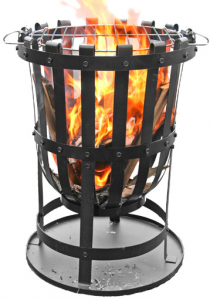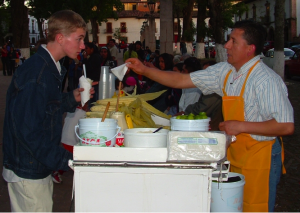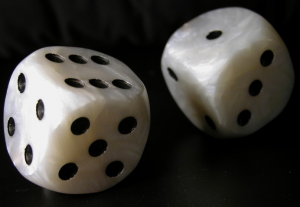Things that have survived always serve as emissaries from the past. And people are naturally curious beings. They want to learn more about people in the past. Did they have anything in common with ourselves? Some elements of everyday life remain constant through the centuries and across the world. For life to continue, new generations of men, women and children are born. All of them have to find shelter, to eat, to drink, to clothe themselves, to divide their time between different pursuits, to work and to play. It has never been completely of their own choice – the relationship between necessity and choice in any generation has been complex.
These pages bring short articles from everyday life of our ancestors. It should help you to improve your vocabuly, practise basic grammar structures. I hope you will enjoy it.
ARTICLE 1
The Day-to-Day Life in Ancient Rome
Your objectives:
1. Learn new vocabulary in the table. 2. Fill in the gaps in the text below – use vocabulary from the table. 3. Do you know the name in the crossword puzzle? Read something about him. 4. True or false? 5. Romans rented their vacant premises. You also have a flat to let. Write a clever advertisement giving all necessary information for the future occupat/tenant. 6. Translate into English:(1.)
| English | Czech | English | Czech |
| appaling | děsivý, strašlivý | sewage | odpadní vody |
| grandeur | velkolepost, nádhera | brazier | koš na oheň |
| slop | pomyje, splašky | musty | zatuchlý |
| tip | vyklopit, vysypat, vylít | quaff | vyzunknout, vypít |
| eat one’s fill | najíst se do syta | charmer | zaklínač, zaříkávač |
| abound | hojně se vyskytovat | strident | hlasitý, hlučný, pronikavý |
| dice | hra v kostky | premises | budova s pozemkem, objekt |
| gnaw at | okusovat, hryzat | sewer | stoka, kanál, kanalizace |
| mingle | mísit se, promíchat se | plumb into | nainstalovat, zapojit do |
| peddlar | podomní obchodník | unglazed | nezasklený |
| order | vrstva, skupina, třída | disposal | odstranění, likvidace |
| gossip | klepy, drby | vendor | prodejce- pouliční, stánkový |
| cramped | přecpaný | scruffy | špinavý, zanedbaný |
 Brazier |
 Vendor |
 Dice |
(2.)
The 1…………………of the Romans’ public buildings is well enough known. But the vast mass of city-dwellers lived in ill-lit, sparcely furnished homes, most of which were rented 2 ………………………. Apartment blocks and other dwellings were covered with signs advertising vacant accommodation. The advertisements were usually painted in tall black letters, and the last line, giving the owner’s name, was in red to attract attention. With shop signs and graffiti also covering the walls, Roman buildings were 3 ………………..than architectural studies often suggest.
All these buildings were served by a network of 4…………………., of which the Cloaca Maxima is the largest surviving example. But most families were not 5…………………into it. Instead, they carried their 6………………and 7………………………to a neighbourhood 8…………………..point – or simply 9 …………………..them out of their 10……………………windows directly into the street. Claims for compensation were often filed by luckless citizens who had household dirt and foul-smelling rubbish poured over them in this way.
The Romans lived, traded and ate in the street. The poor even cooked food out-of-doors, on portable stoves and 11 ……………………. Cooked food was also sold at stalls known as popinae, and for a couple of copper coins, slaves and other members of the lower orders could eat their fill in the 12…………….., 13……………………little taverns which 14…………………….in the city. These were great centres of 15 ………………..where, clustered around benches, labouring men played 16 ……………, 17…………………at cakes of cheese and meal, and 18……………………cheap wine from Crete, which was often warmed to suit the Roman taste.
The day-to-day noise in Rome was 19…………………. In the street boys 20…………………………. of sausages and men selling pease pudding yelled out their wares, their 21…………………cries 22…………………………with those of 23……………………., snake 24………………….., courtesans and street entertainers.
(3.)

- TŘÍDA, VRSTVA, POŘÁDEK
- PĚCPANÝ
- ODSTRANĚNÍ, LIKVIDACE
- STOKA, KANÁL
- POKRÝVAT, PŘIKRÝT
- HOJNĚ SE VYSKYTOVAT, OPLÝVAT
- ZANEDBANÝ
- ZATUCHLÝ, PLESNIVÝ
- BAVIČ
- VYZUNKNOUT, VYPÍT
- ČERVEN
- OTROCI
- MÍSIT SE
(4.)
1. Rome was a very noisy town.
2. Most houses were plumbed into a network of sewers.
3. The walls in Rome were often covered with graffiti
4. Many people lived and cooked in the streets.
5. There were not many cheap pubs in Rome.
6. Romans often drank warm wine.
(5.)
YOUR ADVERT DESCRIPTION
Remember to state the important facts about the property clearly and concisely. Like whether it is a house, flat, apartment – and how many bedrooms it has. Most importantly – don’t forget to state how much the rent is.
Describe also the local area; public transport; off-road parking (if any); all available amenities in the property; say if there is a garden, or any other outside space, or nearby park; Internet connection; remember your advert is your marketing tool – writing a good description of what’s on offer can be as important as stating the asking rent.
(6.)
1. nedostatečně osvětlený pokoj
2. dožadoval se (domáhal se, uplatňoval nárok) odškodnění (náhrada škody)
3. pes ohlodával (okusoval) kost
4. zaříkávač hadů
5. přitahovat pozornost kolemjdoucích
6. pár drobných mincí (měďáků)
7. přenosná kamna
8. zatuchlá putyka
9. obrátil do sebe 2 piva
10. pouliční prodavači “vyřvávali“ své zboží
